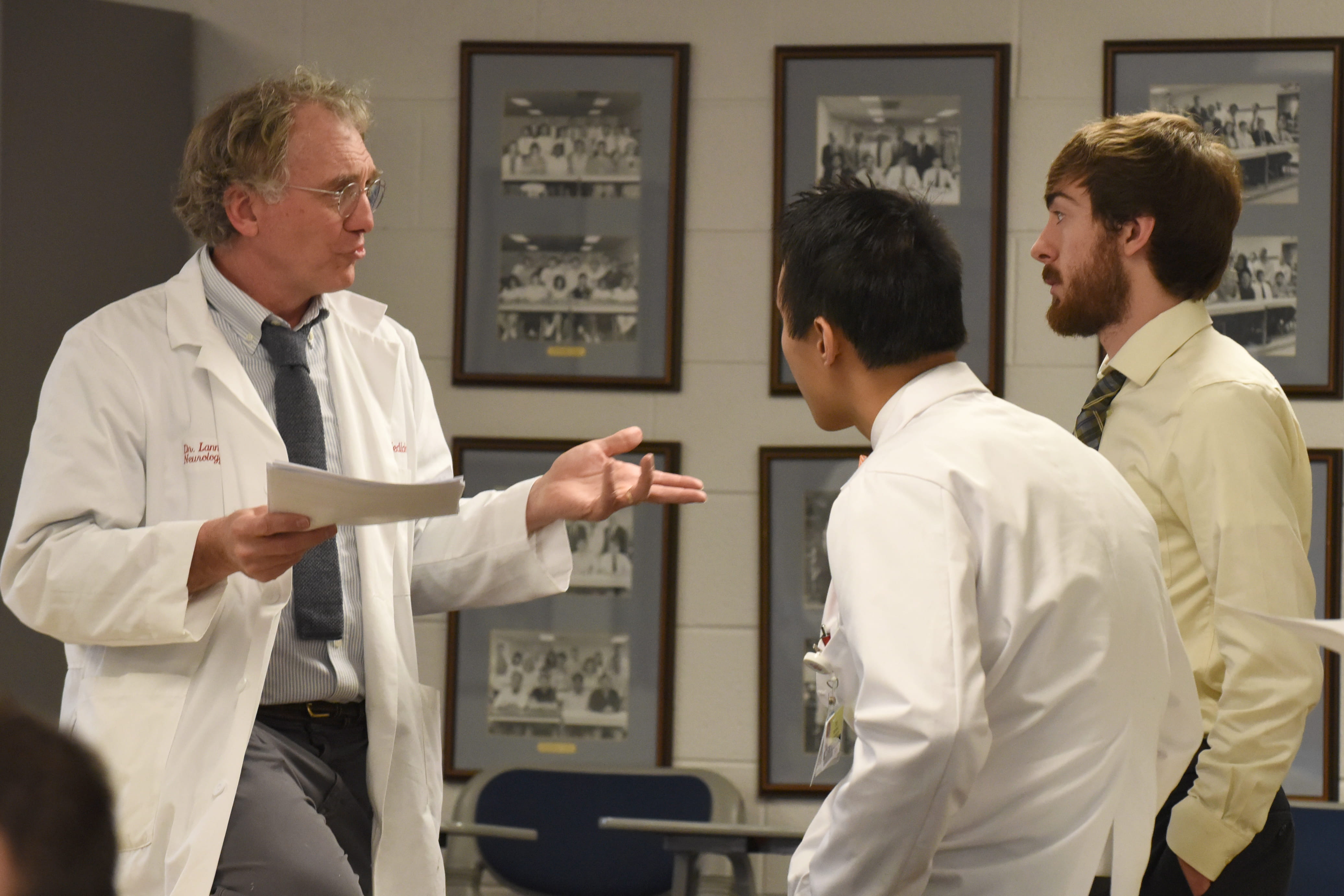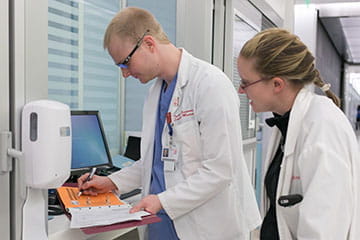Medical education is a fascinating and rewarding journey, yet the path from student to healer is long and challenging. The Mentoring and Advising program (or MAP) at IU School of Medicine was designed by students and faculty to ease that path for learners by providing academic support, career development and access to other resources — throughout all four years of medical school.
The statewide program includes campus-based lead advisors who work collaboratively to oversee and guide students’ academic progress. Students will have three scheduled meetings with their lead advisor each year, but many students will meet with their lead advisor more than that.



